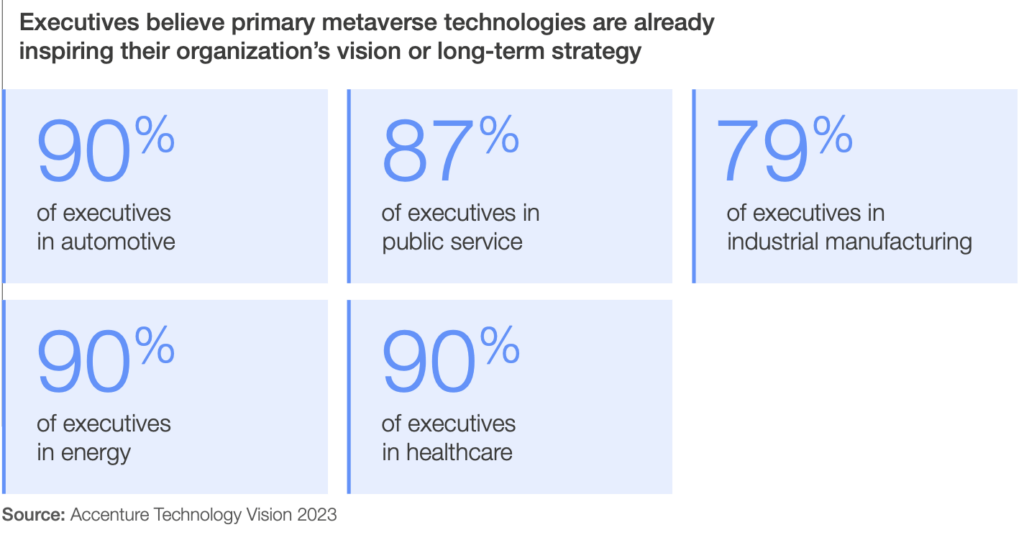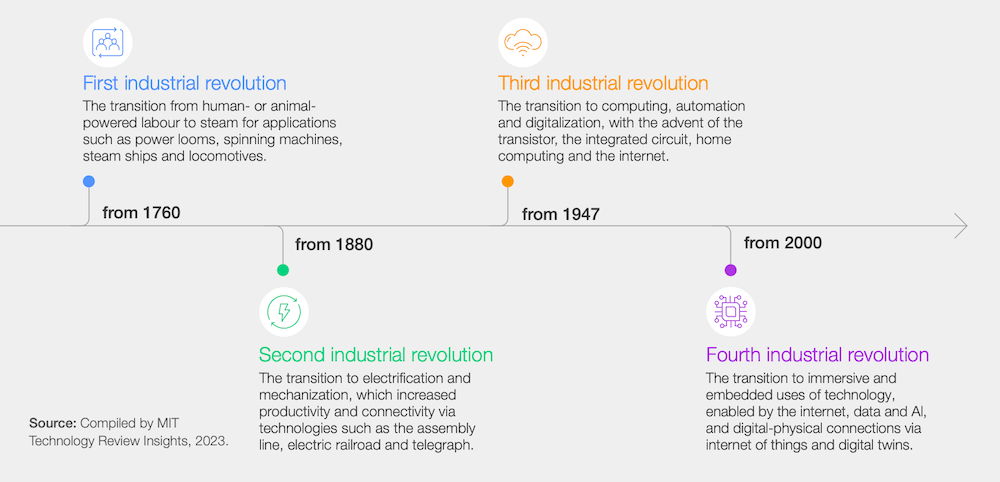The Industrial Metaverse: Insights from WEF Report
The World Financial Discussion board (WEF) has launched a report that sheds gentle on the rising impression of metaverse applied sciences within the manufacturing sector. This rising know-how, which permits extremely immersive digital environments and is suitable with cryptocurrencies and NFTs, is quickly gaining traction amongst manufacturing corporations, marking a shift in the direction of the subsequent part of the commercial revolution.
Trade leaders are taking discover, with 92 % of executives actively exploring methods to include metaverse applied sciences into their operations. The WEF report, titled ‘Navigating the Industrial Metaverse: A Blueprint for Future Improvements,’ predicts that the worldwide marketplace for industrial metaverse will attain $100 billion by 2030, bringing about main transformations in industrial worth chains.

The economic metaverse, as outlined by MIT and Siemens, creates digital twins of advanced methods like machines, factories, cities, and transportation networks. This digital setting affords members immersive, real-time, interactive, and steady simulations that mirror the true world. Moreover, such developments will allow sectors starting from automotive to healthcare to handle advanced real-world challenges by way of digital options.
On the core of the commercial metaverse are 4 key applied sciences – digital twins, spatial computing, synthetic intelligence (AI), and blockchain, based on the report. These applied sciences work collectively to create a blended actuality, eliminating bodily limitations and permitting for larger agility, adaptability, and real-time interactions. AI and quantum computing will improve digital twins, simulating real-world objects, to revolutionize processing capabilities and allow extremely correct and speedy simulations of advanced situations.

Challenges and Alternatives Forward
Whereas the potential of the metaverse is immense, navigating its complexities poses important challenges for {industry} leaders. The WEF report emphasizes the necessity for cross-industry collaboration to develop the required capabilities and ecosystems to leverage the advantages of this know-how absolutely. It additionally stresses the significance of a accountable, moral, and economically viable method in the direction of harnessing the facility of the metaverse. The report outlines vital issues for stakeholders embarking on this journey.
Financial Affect and Future Projections
The financial impression of the metaverse seems to be to be substantial, with a projected worth of $900 billion by 2030. Digital experiences are anticipated to contribute two-thirds of this determine, highlighting the numerous function of the commercial metaverse in shaping industries and driving future improvements. Furthermore, by the last decade’s finish, the {industry} metaverse sector alone is predicted to generate $100 billion in world revenues, surpassing each client and enterprise sectors mixed.
In conclusion, the WEF report highlights the rising significance of metaverse applied sciences within the US manufacturing sector. With its potential to revolutionize product design, improvement, and operational effectivity, in addition to its important financial impression, the commercial metaverse clearly stands to form the way forward for numerous industries. Collaborative efforts and accountable implementation might be essential in harnessing the complete potential of this rising know-how.
